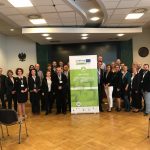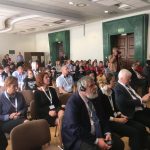 Projects
Projects
 Projects
Projects
A single approach to air quality management in urban areas within the TRITIA region
Currently, air quality improvements in areas severely affected by air pollution are managed on the local level, without taking into account the main causes of pollution and without a coordinated approach to the necessary measures. However, air pollution does not respect regional or international borders, and in order to adequately address the problem it is essential to develop interregional and international cooperation. The purpose of the Tritia project is to create a mechanism for international air quality management by developing a shared database, shared management and forecasting tools, and joint air quality strategies.
The main outputs of the project are:
- A spatial database containing air quality information (meteorological and emissions data) from the Czech-Polish-Slovak border area;
- A mathematical model for forecasting air quality (probability of smog situations etc.);
- Air quality management tools, primarily an air quality management system and a forecast-based warning system;
- Proposed strategies for achieving air quality improvements and reducing emissions from various sources at the level of functional urban regions within the TRITIA region.
Partner cities in the Tritia project are Ostrava, Opava, Žilina, Opole and Rybnik, and partner regions are the Moravian-Silesian Region, the Žilina Region, the Opole Voivodeship and the Silesian Voivodeship. The main benefit of the project is the application of a collaborative approach to air quality management when designing an optimum combination of measures maximizing the positive impacts on human health in the affected regions. The air quality model – developed by a supercomputer – will be verified via various measurements conducted by research institutions involved in the project – the VŠB-Technical University of Ostrava (CZ), ACCENDO (CZ), the University of Žilina (SK), the Central Mining Institute (PL), and the Institute of Meteorology and Water Management (PL).
The proposed methods and outputs will also be applicable anywhere in Central Europe facing the same issues.
Funding: The project is funded via the Interreg Central Europe programme by the European Regional Development Fund (ERDF).
Project duration: June 2017 – May 2020





